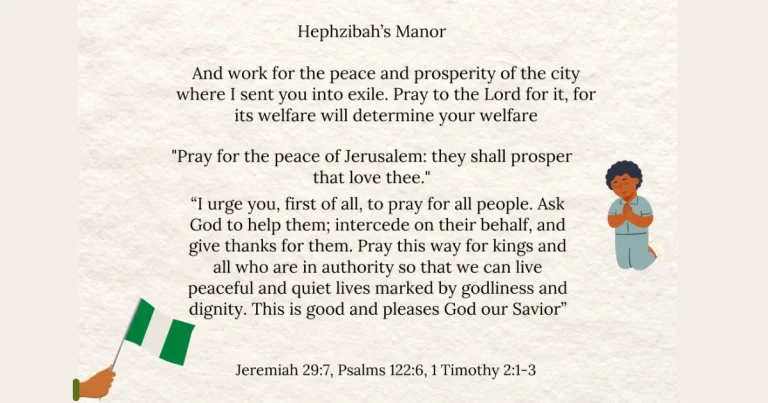Everyone can relate to the current economic challenges, but will dwelling on them, especially when our conversations are filled with doubt and unbelief, bring any relief or change anything? Prices have skyrocketed, but that’s no reason to speak fear and lack. Constantly discussing these issues in a negative and hopeless manner only reinforces anxiety and scarcity. It may be hard to believe, but just as things took a downturn suddenly, they can also turn around just as quickly or right in the midst of hardship, famine, and difficulty, you can thrive.
Elisha and the Famine in Samaria: A Divine Turnaround
During the reign of King Joram of Israel, the city of Samaria was under siege by the Syrian army, led by King Ben-Hadad. The siege caused a severe famine, making food so scarce that people resorted to eating donkey heads and even dove droppings. Some even turned to cannibalism.
In the midst of this crisis, the prophet Elisha delivered these prophetic words from God:
“By this time tomorrow, a seah of fine flour shall be sold for a shekel, and two seahs of barley for a shekel, at the gate of Samaria.” (2 Kings 7:1)
One of the king’s officers, like many of us today, doubted this prophecy. Elisha told him that he would see its fulfillment but would not partake of it. True to the prophet’s words, the next day, the prophecy came to pass; the famine ended, and food became plentiful and cheap. However, the doubting officer was trampled to death at the city gate as the people rushed out. That very night after Elisha gave the prophecy, four lepers, who were outside the city gates because of their condition, stumbled upon the abandoned Syrian camp. They ate, took some treasure, and then went back to tell the city. When the news reached Samaria, the people rushed out, plundered the camp, and suddenly, food became abundant and affordable; just as Elisha had prophesied.
Isaac: Thriving in the Midst of Famine
Even when circumstances are difficult where you are, that is no reason to stop expecting God’s blessings. Right in the midst of famine, hardship, or uncertainty, God is fully capable of prospering you. In fact, I believe He delights in pouring out His love even more in such seasons; to set you apart, to showcase His faithfulness, and to remind you of His deep care.
We see this vividly in the life of Isaac. During a time of severe famine, while others struggled, God’s blessing set him apart, causing him to flourish. His prosperity became so overwhelming that the people of the land began to feel threatened by his success and eventually asked him to leave.
Genesis 26:12-14 says:
“When Isaac planted his crops that year, he harvested a hundred times more grain than he planted, for the Lord blessed him. He became a very rich man, and his wealth continued to grow. He acquired so many flocks of sheep and goats, herds of cattle, and servants that the Philistines became jealous of him.” His growth and influence became undeniable, to the point that King Abimelech told him, “Go somewhere else, for you have become too powerful for us” (Genesis 26:16).
This is the nature of God; He is not limited by the economy, circumstances, or location. If He did it for Isaac, He can do it for you. Malachi 3:6 says”For I am the Lord, I change not…
You Get Out of Nigeria what You Expect From It
One of the reasons people who leave Nigeria (or any country) in search of greener pastures often succeed is because they expect success. They believe their new country will work for them, they expect to be productive, and they are. Many of the nations they migrate to, such as Canada and the U.S., continue to flourish because people there are constantly seeing the good, expecting good, projecting good, and working towards their hopes and expectations. They put in their best, anticipate the best, and naturally, they reap the best.
Ironically, the same country some are desperate to leave is the same country others migrate to and prosper in. Time and time again, I see foreigners in Nigeria attending the best schools, living in the best neighborhoods, and enjoying a high quality of life. And I ask myself: Is this not the same country that so many are running from?
Proverbs 18:21 says “death and life are in the power of the tongue: and they that love it shall eat the fruit thereof.” Guard your words. Guard your expectations. Refuse to join the bandwagon of those who speak negatively about the country or its leaders. The truth is, you will get out of a country what you expect from it.
When God’s people were taken into captivity, their circumstances were undeniably harsh. Imagine moving from a land flowing with milk and honey to one of hunger, oppression, and hardship. Yet, in that very place, God spoke through His prophet Jeremiah and commanded them to “Seek the peace of the city whither I have caused you to be carried away captives, and pray unto the LORD for it: for in the peace thereof shall ye have peace.” (Jeremiah 29:7)
Psalms 122:6 says “Pray for the peace of Jerusalem: they shall prosper that love thee.”
1 Timothy 2:1-2 says “supplications, prayers, intercessions, and giving of thanks, be made for all men; For kings, and for all that are in authority; that we may lead a quiet and peaceable life in all godliness and honesty.”
The same principle applies within a company or a church setting; you get out of these institutions what you expect. Resist the urge to speak negatively about your workplace, your bosses, your church, or its leaders. Instead, let God be the judge of their actions.
Remember how God made an example out of Miriam and Aaron when they spoke against Moses, His chosen leader (Numbers 12:1-10). This serves as a warning about how we speak concerning spiritual leaders. Let it never be said that the next gossip, scandal, or negative report about a minister of the gospel came from your lips. Even if you are asked to verify the integrity of a minister whom you know is not walking rightly and would not be a good recommendation for ministry, there is no need to go into the details of their errors or shortcomings. Let God be the judge of His servants (Romans 14:4). Your role is to walk in wisdom, guard your words, and honor God in how you handle such matters or conversations.
Remember, your expectation shapes your experience; your blessings may be tied to this. Let Philippians 4:8 be your guide. Let it shape your conversations and define your expectations.
A Few Questions for You to Consider
- What are you expecting from your country?
- How can you begin to make sure you align your thoughts, words, and expectations with God’s word today?






